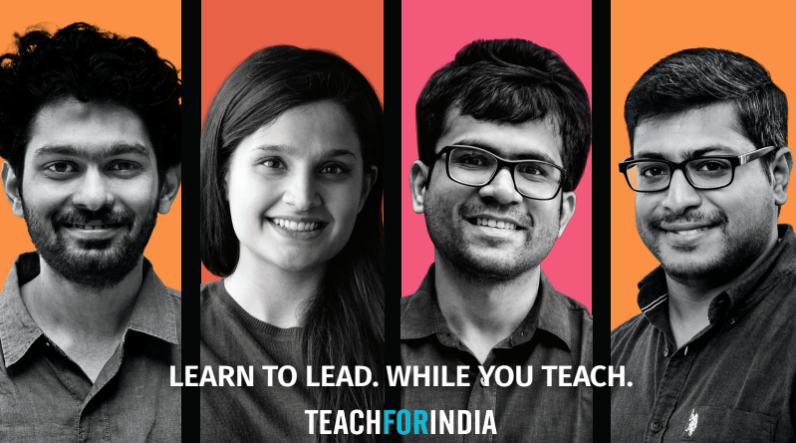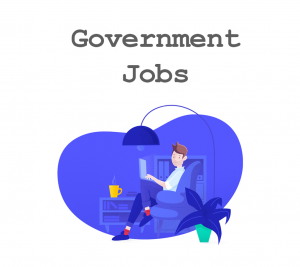An investment in knowledge pays the best interest, so goes a famous saying and the unique Teach for India [TFI] fellowship initiative has proven to be just that – a kind of investment that has contributed in the space of education for over a decade. Right from the beginning, Teach for India envisioned that no child should be left uneducated, wishing to reach their knowledge teaching mission to each and every child of our country in the near future. However, they realized the spread out of their educational mission should scale up and beyond just the seven metro cities. The dream of spreading out the wings to the rest of the nation seemed gradual. Teach for India’s Incubation Program [TFIx] was formed to enable edu-preneurs across the country to reach the last child. As a result, it speeded up the vision of TFI to fulfill its vision of educating every child in the country.
The new age-entrepreneurs in the education space were readied under the Incubation Program of TFIx that started in the year 2017. Apart from the already existing seven metros, the incubation started helping the edu-preneurs pan-India basis to organize a high impact program through their own contextual Fellowship Program. The regional level edu-leaders were the main beneficiaries who wished to scale up their already established organizations to reach more children and develop more local leaders. This process started creating a better sense of leadership amongst them. These new-age Ed-entrepreneurs were provided with customized support in the very nooks and corners of villages, marginalized communities and urban areas alike.
The incubation program has three goals, the first one being enabling entrepreneurs to launch and sustain high impact Teaching Fellowships in their contexts. Based on their context, like girls’ education, experiential science, sports, story-telling, life-skills, holistic learning, and so many other areas that produce sustainable factors, these entrepreneurs are supported with one year of training and mentoring. There are 23 TFIx incubated entrepreneurs running fellowships on various domains, while 11 are still under incubation in order to promote knowledge and education for all.

Teachers use mind-maps to enrich the students
Operating in their own unique educational environments, these leaders learn how to create an impact and also to sustain their projects towards providing education through the TFI Incubation. Observing the plight of the students and the inability of kids and their families to choose the correct direction, Divakar, a high achiever throughout and alumni of IIT and IIM – realized that he needed to do something about the struggles of children for making the right decision. This made him take the challenge and join the TFI fellowship in 2012.
Divaker found his passion for education through the fellowship experience. He founded Alohomora 3 years ago and has been building thriving careers for youth from underserved communities since then. He is ready to empower 1 million young adults to pursue interest and aptitude aligned careers by 2025. Fellows under the incubation program get ample exposure to the grassroot realities of the education system, while they are trained to build knowledge and skills to emerge as educational leaders.
The second goal of the program is to build communities of entrepreneurs which is a lifelong support system for each other. The cohorts are formed where the participants come together in order to explore the foundations of TFIx Fellowship Model. Face-to-face training, program partner visits, webinars and fellowship site visits are supported by TFIx that are typically residential. Ravi is an example of such a beneficiary who hails from Bihar and graduated from the prestigious Delhi University.

Rural students enjoying the classes
Once a part of the education system back in Bihar, Ravi was already sensitive to the dismal reality of students in the rural areas. Moreover, Prime Minister’s Rural Development Fellowship (PMRDF), exposed him further to the grim realities of blown-up school buildings by Naxals, classrooms used as cowsheds, abysmal learning level of children and youths – in an extremism affected district, Munger, Bihar. He soon realized the immense need for community engagement and grassroots leadership to improve delivery of quality education to children. Ravi now tiresomely engages in building female community edu- leaders to enrich educational experiences of underserved children by founding i-Saksham Education and Learning Foundation.
There are several like Ravi and Divakar who are benefitting immensely from the Teach For India’s Incubation Program – TFIx. TFIx importantly operates on the third goal of the program that every entrepreneur develops awareness about the internal and the external ecosystems to leverage the maximum support around them, especially from the Learning Circle Sessions. These sessions are held at a chosen site of an entrepreneur from the cohort, in order to promote peer-to-peer learning. These are residential training sessions where entrepreneurs have 4-5 days of sessions in Program Design, Monitoring and Evaluation, Organization Strategy, and more such activities. Program Partner visits are in store after the LC Training session is over.
This is where a dedicated TFIx Program Partner who provides tailored support works closely with the entrepreneur. Weekly calls become a normal feature along with entrepreneur site visits that happen 4-5 times in a year. It structures around building relevant knowledge base and skills such as Fellowship Foundation, Fellowship Recruitment, Selection and Marketing, Student and Fellow Curriculum, Fellowship Strategy, People Development and Fund-Raising skills.
Vivek Kumar, the founder of Kshmatalya Foundation, started working in Kotra, in Rajasthan and Delhi. He moved to a tribal village to understand the role of education in the most marginalized settings where he learned two things. First of all, Tribal people are the ones who value education the most, that’s why they don’t send their kids to schools providing substandard education. Secondly, the tribal communities believe in developing valuable and meaningful relationships. Once they are provided the opportunities of engagement where they understand the purpose and meaning, they participate with full force. This is where Vivek decided to bring in community engagement, systematic transformation in education at block level, with key focus on integrated pedagogy, 21st century life skills and finally Kshamtalya was formulated to build demand for quality education through developing regional leadership.




